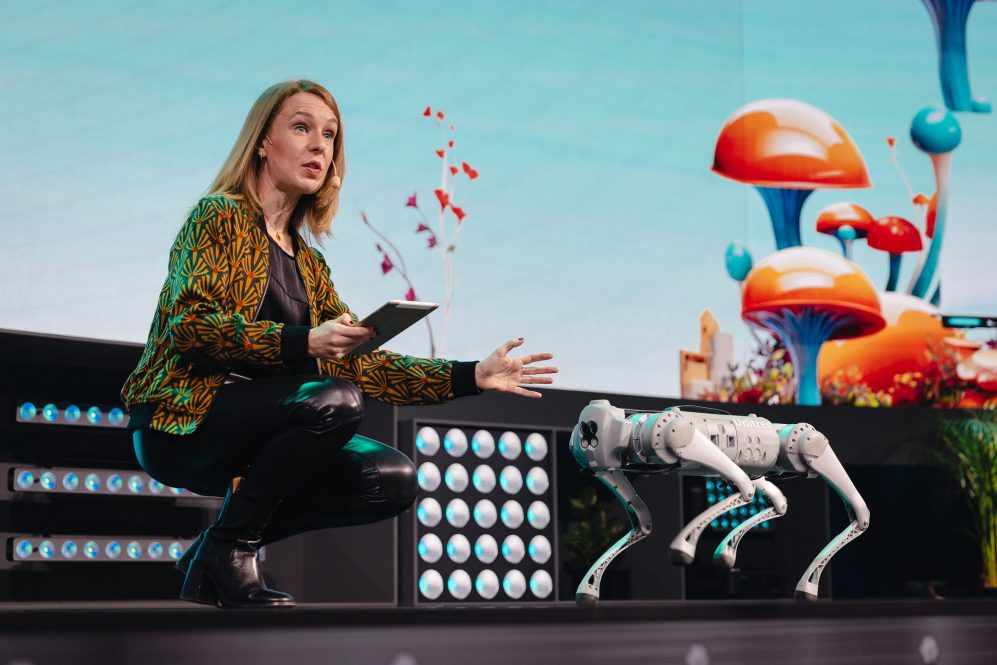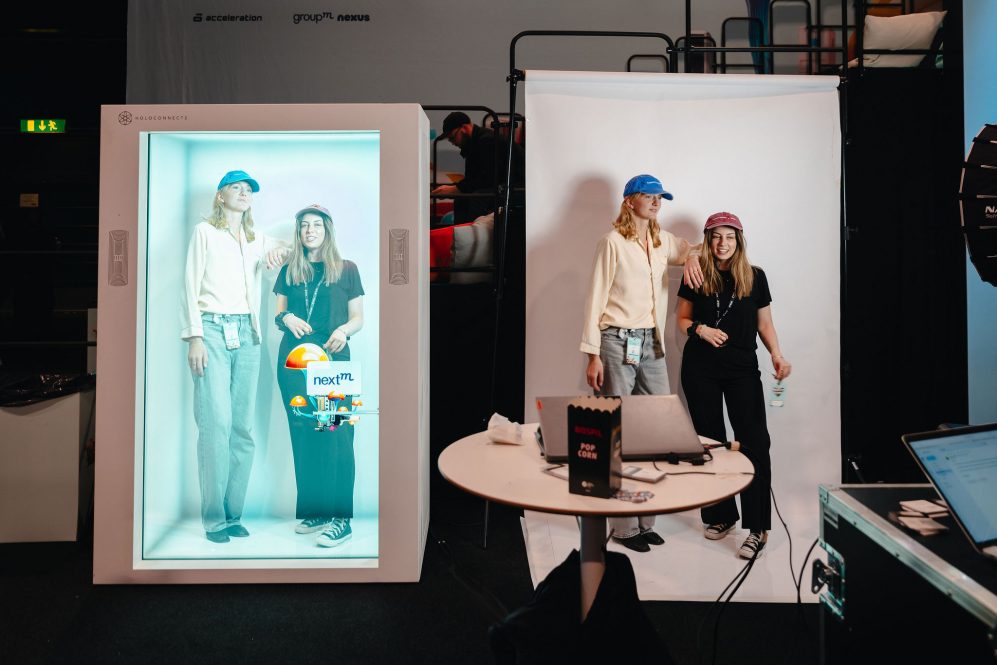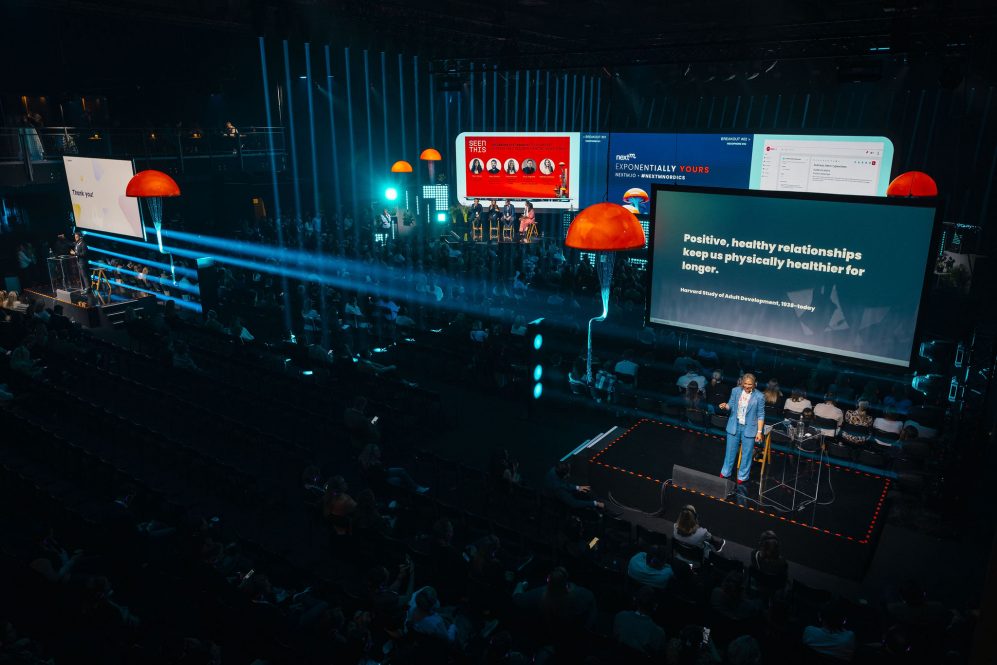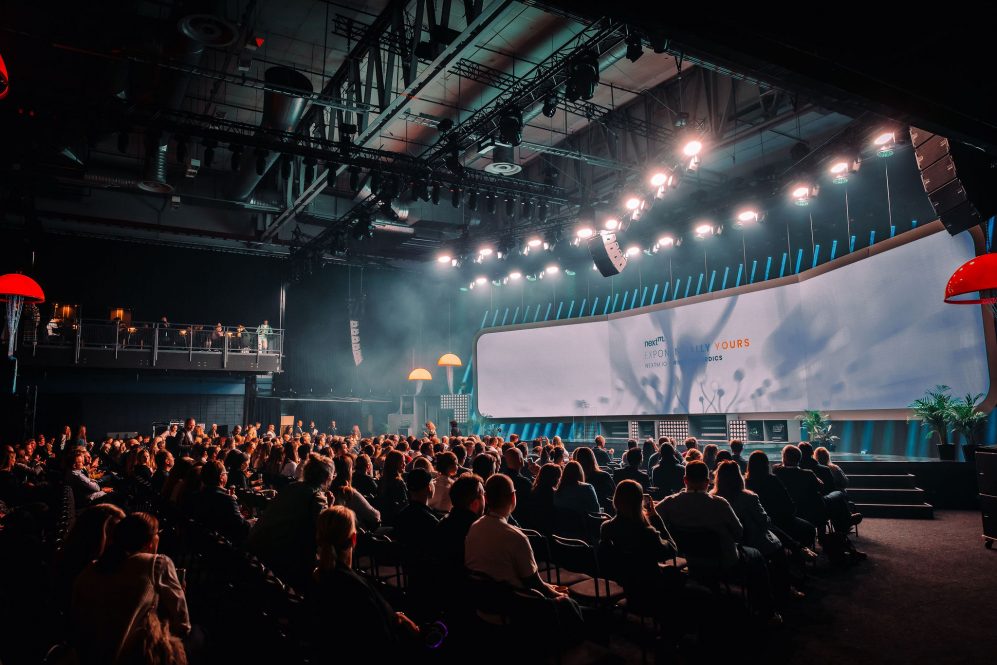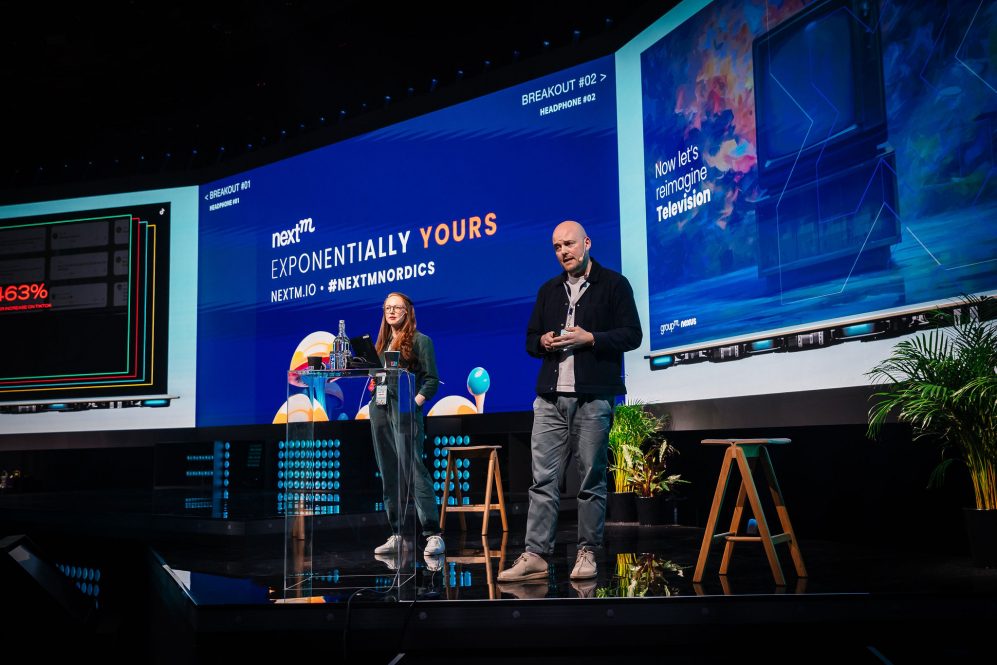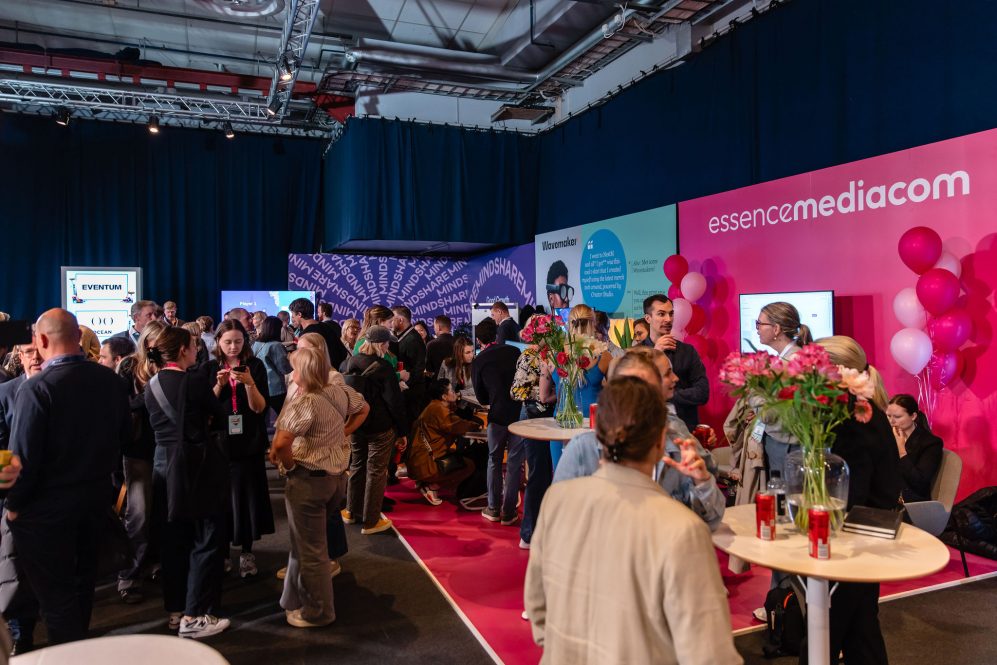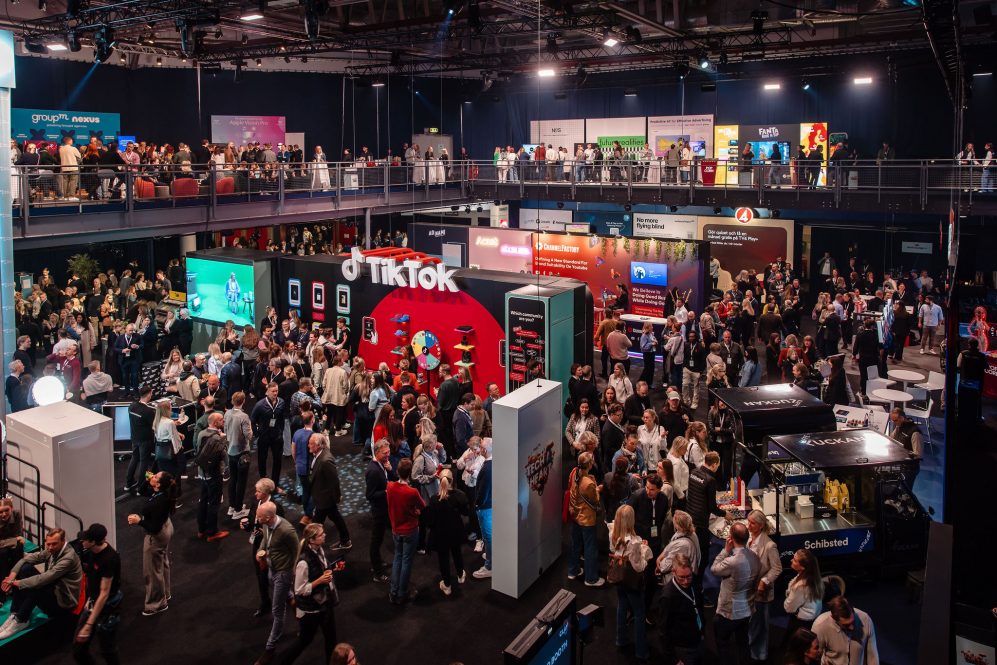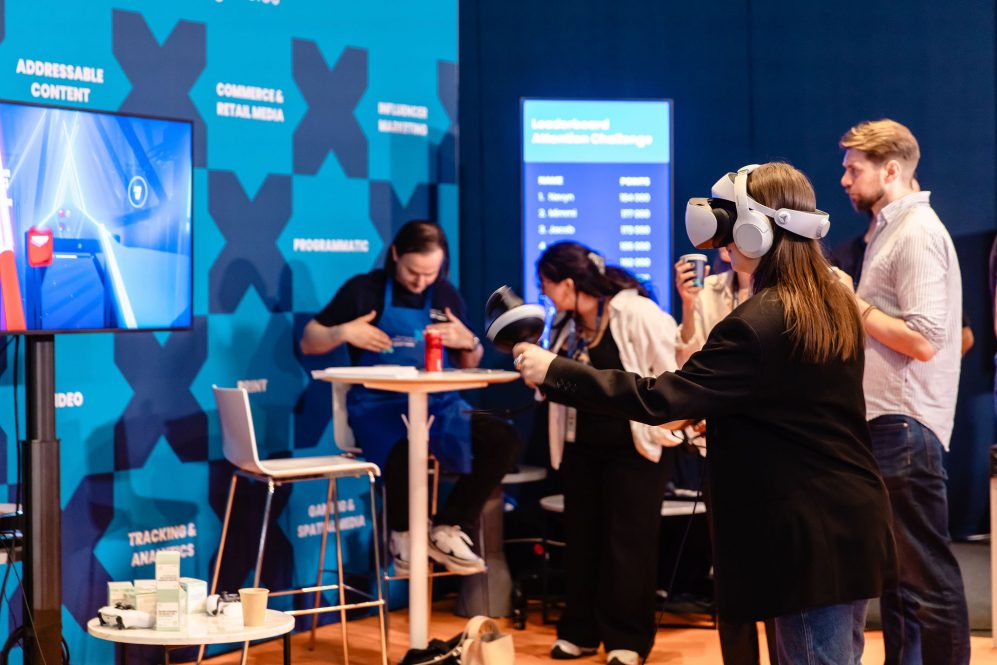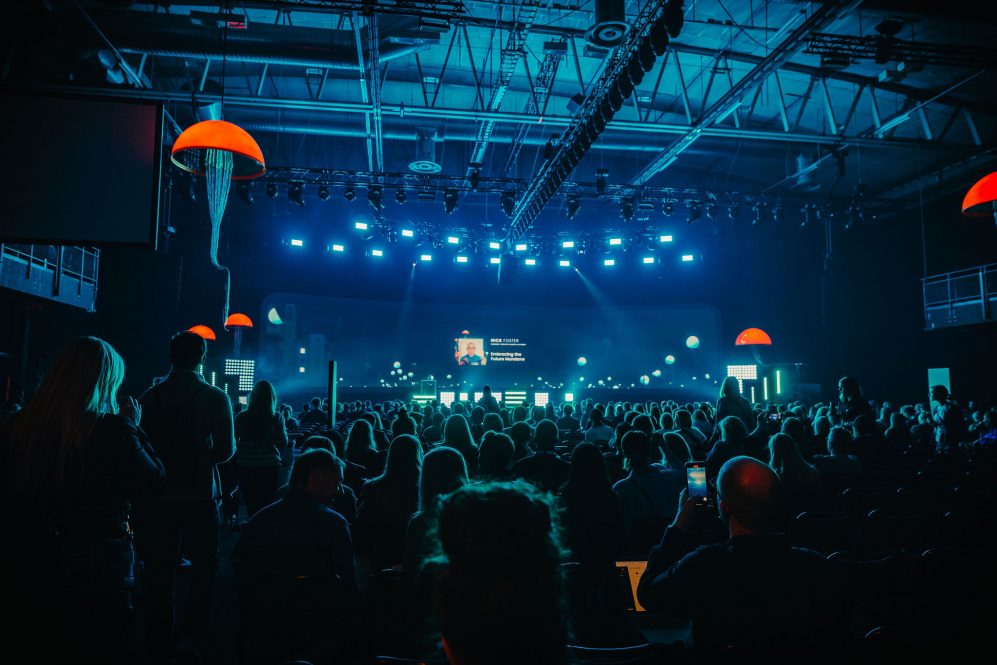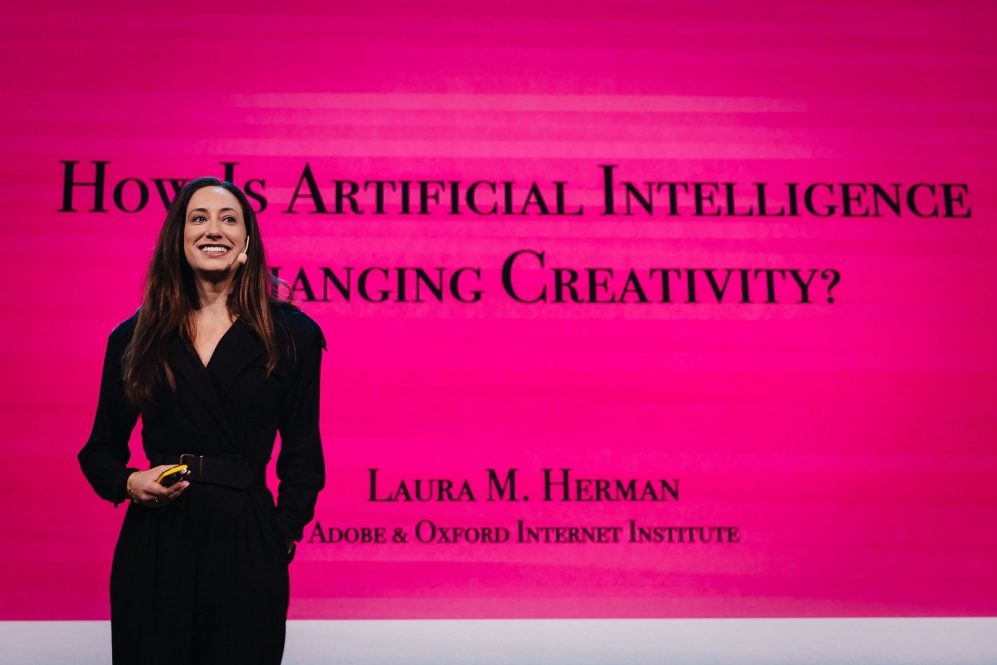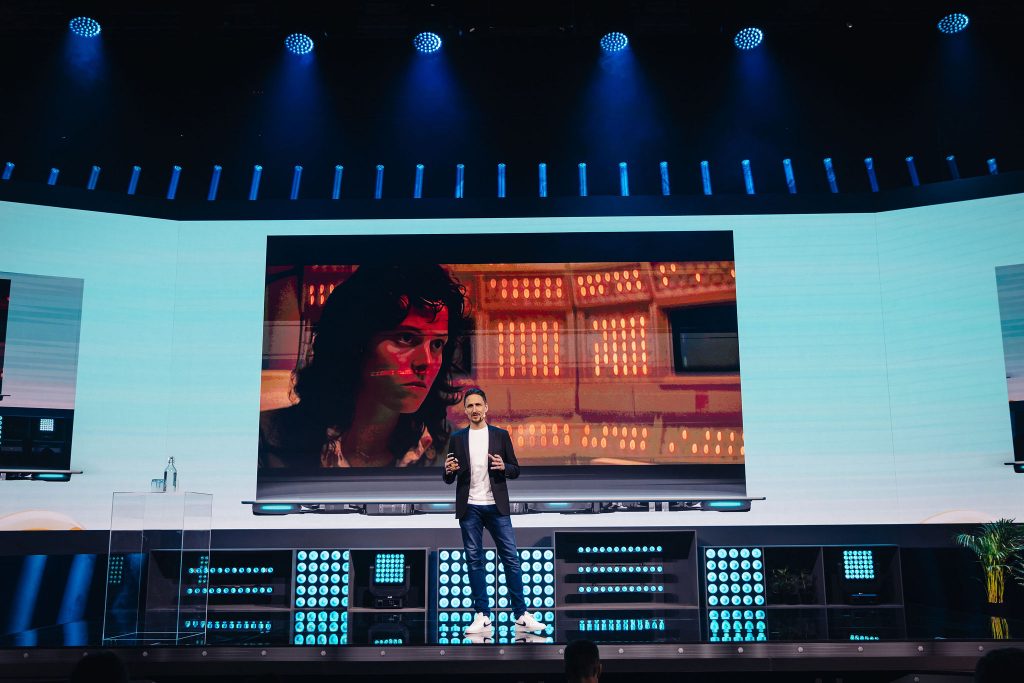Key Topics from NextM – Exponentially Yours
- News
- April 28, 2024
An intense NextM Nordics came and went in Stockholm on April 24-25 and it’s time to sum up what we learned. This year, the event emphasized a pragmatic approach to envisioning the future, urging collaboration between human and artificial intelligence to drive innovation. It also highlighted the evolving landscape of AI, the transformative power of generative AI in creative industries, the importance of first-party data, and the need for sustainability in digital infrastructure. Find 10 central NextM topics below and some of the keynote presentations recorded here!
10 key NextM outtakes:
1. Demystifying the Future: Shaping a Realistic and Actionable Tomorrow
Nick Foster and Angela Oguntala advocated for a more pragmatic and mundane lens on the future, steering away from sci-fi fantasies and theme parks. By looking at the future as an iterative process built upon present actions, we demystify future tech and visions of the world, making it more attainable and easier to plan for.
2. Embracing the HI x AI Partnership
It’s time to embrace the partnership of human and artificial intelligence, transcending competition to forge a path of innovation and creativity. This collaboration heralds a new era where the collective power of human ingenuity and AI capabilities will surpass individual capacities. Susanne Livingston urged us to adopt a fluid mindset and seamlessly integrate human intelligence with artificial capabilities. Meanwhile, Oliver Feldwick (T&Pm), Laura Herman (Adobe), and Chris Cabau (Klarna) spotlighted AI’s profound impact on creativity and production, and the vast opportunities it presents.
3. Beyond Singular AI: Navigating the Multi-Model Landscape
In the dynamic world of AI, the notion of one model to rule them all is fading into obsolescence. Ted Schönbeck (Google), Tingyi Li and Begum Firdousi Abbas (Amazon) underscored the importance of embracing diverse AI models, each with its unique strengths and weaknesses. Success will lie in discerning the right model for the right purpose, striking a balance between effectiveness and affordability amidst evolving technological landscapes.
4. Empowering Creativity with Generative AI: Redefining Roles and Realities
The impact of Generative AI on the creative industry has been profound. Oliver Feldwick (T&Pm), Laura Herman (Adobe), and Chris Cabau (Klarna) illuminated a future where creators evolve into multifaceted entities— from copywriters to briefers, from art directors to curators. They showed us how AI-driven productivity tools are already freeing creators from mundane tasks, carving out more space for boundless innovation and creative craft.
5. Harnessing First-Party Data: The Competitive Edge in the AI Era
First-party data emerges as the cornerstone of effective engagement, measurement, and differentiation. Evan Hanlon championed leveraging AI’s efficiency in combining diverse data sources. Meanwhile, Ian Vännman (Schibsted), Ted Schönbeck (Google), Tingyi Li and Begum Firdousi Abbas (Amazon) emphasized the transformative potential of using your own data combined with skilled employees and AI. Ty Ahmad-Taylor (Snap) and Stuart Flint (TikTok) underscored the pivotal role of first-party data in driving impactful measurement methods and Daniel Weilar (IAB) highlighted its crucial role in driving the third digital media revolution: Retail Media.
6. The Next Era of Addressable Media – TV & Retail
With the decline of third-party cookies, integrated media strategies leveraging first-party data become imperative. Laura Hicks and Harry Harcus (GroupM Nexus) unveiled the opportunity of Addressable TV, projected to reach a market value of 87 billion euros by 2027 and Daniel Weilar (IAB) shared that Retail Media is anticipated to reach 25 billion euros by 2026.
7. Coexistence with Robotics: Redefining Human-Machine Dynamics
From a robot dog running around the tech garden to a beautiful robot cello performance to a fireside chat with Robotics Professor Danica Kragic, the robot made an impact at NextM. Professor Kragic emphasized the role of AI and robotics in augmenting human capabilities rather than replacing them.
8. Transforming Marketing Strategies with AI Triad: Generative, Predictive & Suggestive
Mike Storm (Neurons) and Oliver Feldwick (T&Pm) showed us how the synergy of Generative, Predictive, and Suggestive AI, is revolutionizing marketing. This integration not only offers personalized and engaging customer experiences but also enhances the efficiency of predicting customer behavior as it will leverage synthetic and simulated data to build predictive models, optimizing outcomes before they are implemented in physical and digital settings.
9. Navigating Fragmentation: Forging Authentic Connections in a Crowded Landscape
In today’s digital media landscape, fragmentation is pervasive, with an abundance of ads and tools competing for consumer attention. Stuart Flint underscored the evolving role of entertainment on TikTok in forging authentic connections amidst ad bombardment, and Ty Ahmad-Taylor highlighted the necessity for authenticity, relevance, and creativity in the attention economy on Snap.
10. Unveiling the True Cost of Data: Pioneering Sustainability in Digital Infrastructure
Ted Schönbeck (Google), Tingyi Li and Begum Firdousi Abbas (Amazon), Rebecka Sjöström (VO2), and Robin Flodén (Madington) all highlighted the multifaceted true cost of data, transcending financial expenses to encompassing environmental implications. As chips emerge as the new oil, the imperative is clear: to prioritize sustainability while optimizing energy usage and striving for net-zero carbon emissions.
